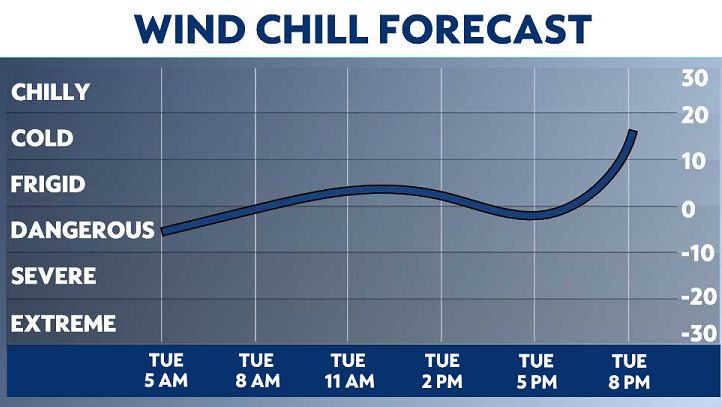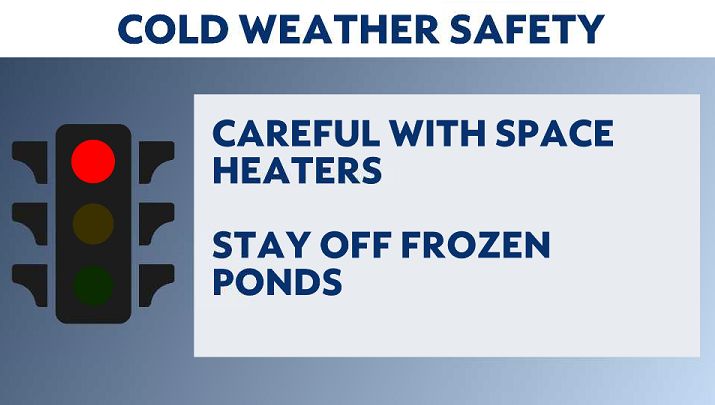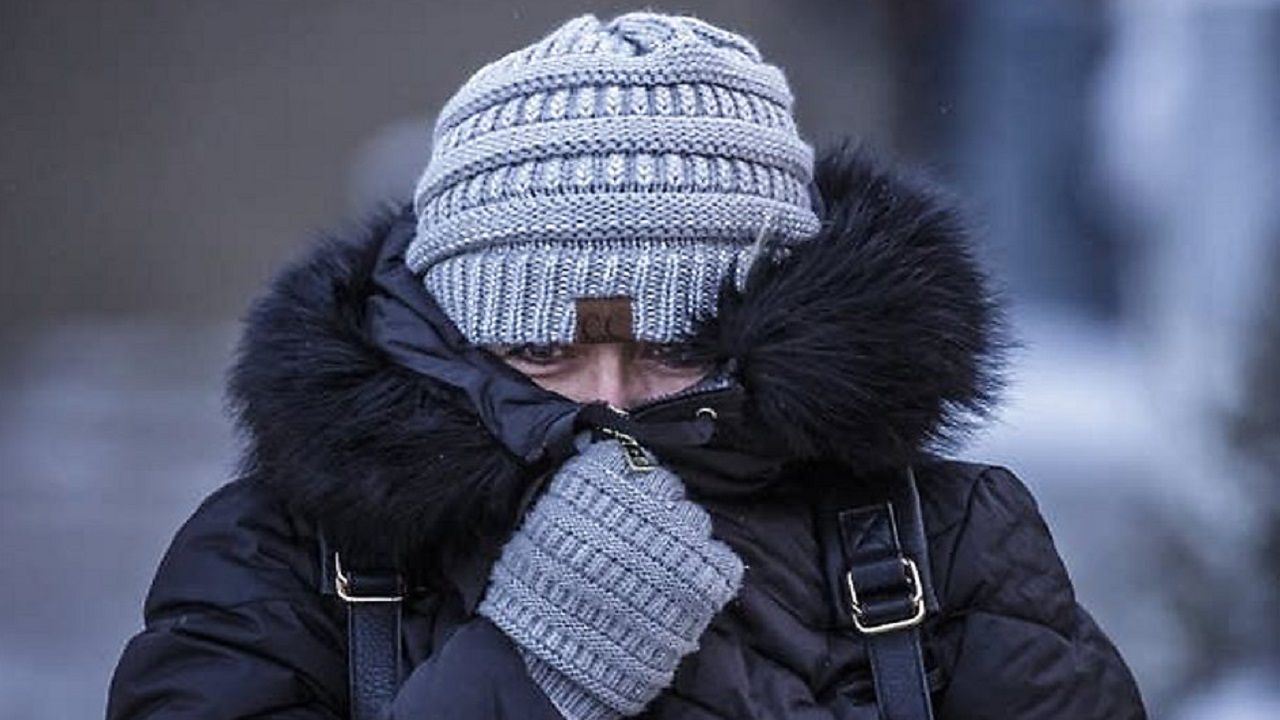Dangerous cold is moving into the city for the first half of the week. Here's what you need to know.
An arctic air mass has arrived from Canada. The frigid air will linger for the next few days. We'll have to wait until at least Wednesday afternoon for a small thaw.
The cold brings dangerous conditions, including an increase risk of home fires, water and gas main ruptures, transit troubles, frozen pond dangers, frost bite and hypothermia. Check on your neighbors and remember that our pets feel the cold as well.
The worst of the cold will be on Tuesday. Readings for the morning commute will be in the mid-teens while the wind chill could go as low as 5 degrees below zero. Afternoon highs on Tuesday won't get out of the teens. You'll want to dress in layers and cover your heads and hands. You lose more heat from your head than from any other part of your body. Also, be careful for icy spots as readings will be below freezing this week from Monday through mid-day on Wednesday.

At home, be sure to check your fire and carbon monoxide detectors, and be careful with space heaters. Avoid using extension cords for these appliances. Cold blasts here tragically coincide with an increase in home fires and carbon monoxide poisoning. Be sure you don't use your oven to heat your home as it can cause carbon monoxide poisoning. Signs of this include confusion, headaches and sleepiness. Carbon monoxide is odorless and colorless. You can report no heat or inadequate heat in your home by contacting 311.

Arctic air in our city also can mean a surge in water and gas main ruptures as the frozen ground shifts and can break old pipes.
Also, please be sure to stay off any frozen ponds. The ice may look solid, but you just never know. Typically, there are several ice incidents each winter.
- RELATED: Here's how to safely avoid thin ice
Our transit system can also experience issues in the cold with frozen switch signals a common problem in aboveground subway and train lines. Be sure to check ahead and be ready to be flexible.



